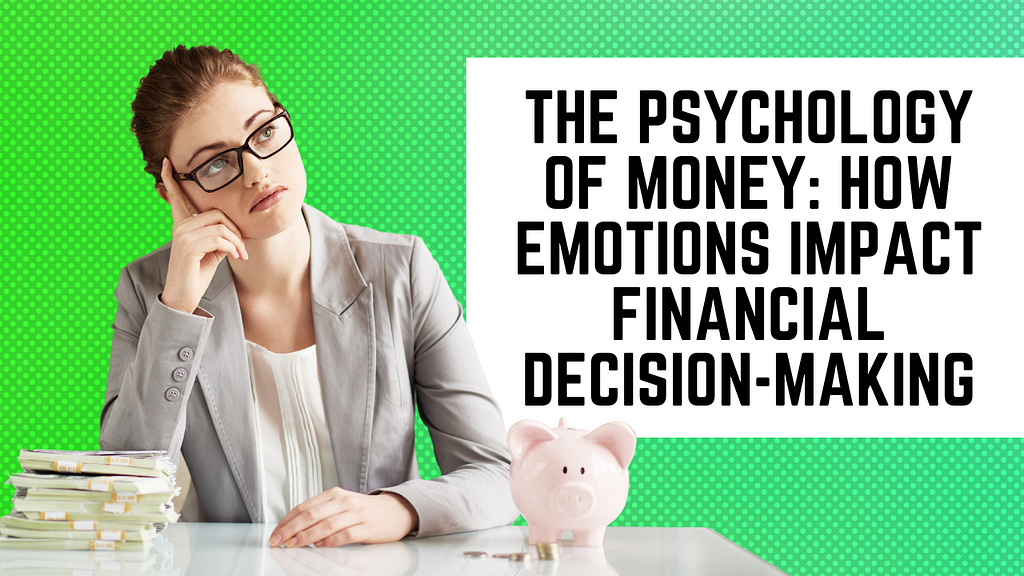
Money is not just a tool for transactions; it’s deeply intertwined with our emotions and behaviors. Understanding the psychology of money is crucial for making informed financial decisions. In this article, we’ll explore the ways in which emotions influence our choices, provide examples, and offer insights into fostering a healthier relationship with money.
1. Fear and Anxiety
Fear and anxiety can paralyze financial decision-making, preventing individuals from taking necessary steps to secure their financial future.
Example: During periods of market volatility, fear can drive impulsive decisions such as selling investments at a loss. Investors may panic and abandon long-term strategies, missing out on potential recovery.
2. Greed and Overconfidence
Greed and overconfidence can lead to excessive risk-taking, often resulting in financial setbacks.
Example: Investors driven by greed might be tempted by speculative investments promising high returns. Overconfidence in their ability to predict the market can lead to substantial losses when these high-risk ventures don’t pan out.
3. Impulse Spending
Impulse spending is often fueled by emotions like stress, boredom, or the desire for instant gratification.
Example: In moments of stress, individuals might engage in “retail therapy” as a way to cope. Unplanned purchases can accumulate, contributing to credit card debt and hindering long-term financial goals.
4. Social Influence
Social pressures and comparisons can influence spending habits and financial decisions.
Example: Trying to keep up with the spending habits of peers or societal expectations can lead to lifestyle inflation. This means increasing spending as income rises, making it challenging to save for future goals.
5. Regret Aversion
The fear of making the wrong financial decision can lead to inaction and missed opportunities.
Example: Some individuals, fearing they might choose the wrong investment, delay entering the market altogether. This procrastination can result in missed opportunities for compounding returns over time.
6. Happiness and Money
Understanding the connection between happiness and money can help individuals align their financial goals with overall well-being.
Example: Research suggests that spending money on experiences rather than material possessions tends to contribute more to long-term happiness. Recognizing this, individuals can prioritize spending on activities that enhance their well-being.
Recognizing the impact of emotions on financial decision-making is the first step towards fostering a healthier relationship with money. By acknowledging and understanding these psychological influences, individuals can make more informed choices, avoid common pitfalls, and work towards achieving their long-term financial goals. Embracing a mindful and rational approach to money can lead to greater financial security and overall well-being.
The Psychology of Money: How Emotions Impact Financial Decision-Making was originally published in Solopreneur101 on Medium, where people are continuing the conversation by highlighting and responding to this story.